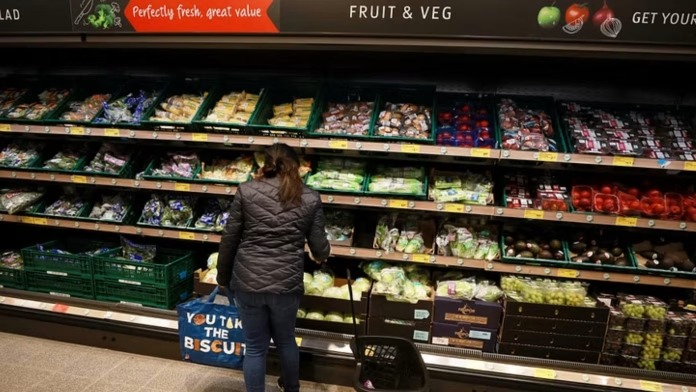The British government is looking at plans to address the rising prices of basic food items such as bread and milk, as reported by The Telegraph. In response to the persistent double-digit increase in the cost of these essential commodities, the government is exploring options to implement measures, including potential price caps, in collaboration with retailers.
On Sunday, during an interview with BBC TV, Health Minister Steve Barclay responded to inquiries about potential price controls by stating that it was “not my understanding,” as reported by The Telegraph.
According to a report by the Telegraph on Saturday, discussions are underway between Prime Minister Rishi Sunak’s office at No. 10 and supermarkets regarding a potential agreement resembling the one implemented in France. This agreement would involve major retailers charging the “lowest possible amount” to consumers.
Despite sources within the government being cited in the report, the Prime Minister’s office has not provided any comment in response to the request.
“My understanding is that the government is working constructively with supermarkets as to how we address the very real concerns around food inflation and the cost of living and doing so in a way that is also very mindful to the impact on suppliers,” Barclay told BBC TV.
Among Western European countries, Britain currently holds the unenviable position of having the highest food inflation rate. Over the past year, food prices have soared by more than 19%, marking the most severe upward trend in this regard since the 1970s. In addition to this, households are grappling with the burden of escalating energy prices, which have been driven up partly due to the ongoing conflict in Ukraine. These combined factors have put significant strain on household budgets.
In recent weeks, prominent supermarket chains like Tesco and Sainsbury’s have made public announcements regarding reductions in prices for certain food items.
The British Retail Consortium (BRC), which represents major supermarkets, has attributed many of the costs to the government’s new regulations. In a statement, the BRC urged the government to prioritize simplifying rules instead of reintroducing price controls reminiscent of the 1970s.
“This will not make a jot of difference to prices. High food prices are a direct result of the soaring cost of energy, transport, and labour, as well as higher prices paid to food manufacturers and farmers,” BRC’s Andrew Opie said.





